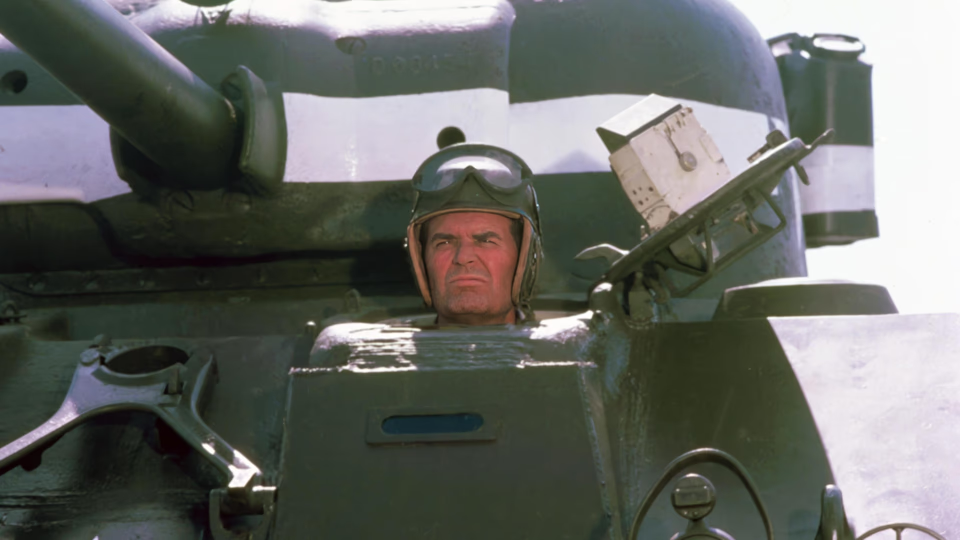Tank

There’s something wonderfully old-fashioned about Tank, a movie that understands the simple pleasure of watching James Garner drive a Sherman tank through a corrupt Georgia town. It’s the kind of film they don’t make much anymore—unpretentious, direct, and confident in its own absurdity.
Garner plays Sergeant Major Zack Carey, a career Army man who’s lovingly restored a World War II Sherman tank with his sons. When his family runs afoul of a venal small-town sheriff played by G.D. Spradlin, Carey finds himself in an escalating war of wills that can only be settled with 30 tons of rolling steel.
The plot and tone feel lifted from television—think The A-Team with a bigger budget and better actors—but that’s not necessarily a criticism. Director Marvin J. Chomsky keeps things moving at a brisk pace, and the script by Dan Gordon knows exactly what kind of movie it wants to be. This isn’t social commentary; it’s wish fulfillment for anyone who’s ever wanted to drive through their problems.
Much of the film’s success rests on the performances and—with one exception—they don’t disappoint. Garner carries his part with his trademark blend of aw-shucks charm and steely determination. Watch him in the bar scene that sets everything in motion: when drunken deputy James Cromwell strikes a woman and prepares to do it again, Garner’s quietly delivered “You proved your point” carries more gravitas than a dozen shouted threats.
Opposite Garner, Spradlin makes for a memorably vile villain. With skin pulled taut across his face like a mask barely concealing something reptilian beneath, Spradlin delivers a performance that feels transported from a darker exploitation film. When he can’t intimidate Garner directly, he targets Garner’s son, played by C. Thomas Howell, arresting him on trumped-up charges and setting up the inevitable showdown.
The film’s weakest element is Howell’s character arc, which never convinces. He begins as a whiny smart-aleck and transforms too abruptly into a devoted son proclaiming his love on national news. When the story becomes his coming-of-age tale in the final act, the movie loses some of its sure-footed momentum. Howell simply isn’t compelling as an audience surrogate, and his dialogue often rings hollow.
There are other minor issues—continuity problems with Garner’s position in the tank, and moments where he seems to be reading cue cards during an address to his troops. But these flaws are easily forgotten by the time we reach the film’s crowd-pleasing finale, which features hundreds of extras and gloriously abandons logic in pursuit of entertainment.
What elevates Tank above similar fare is Garner’s performance. He brings a weathered dignity to Carey that grounds even the film’s most outlandish moments. When he fires up that Sherman and aims it at the county jail, we’re cheering not just for the spectacle, but for the man behind the controls.